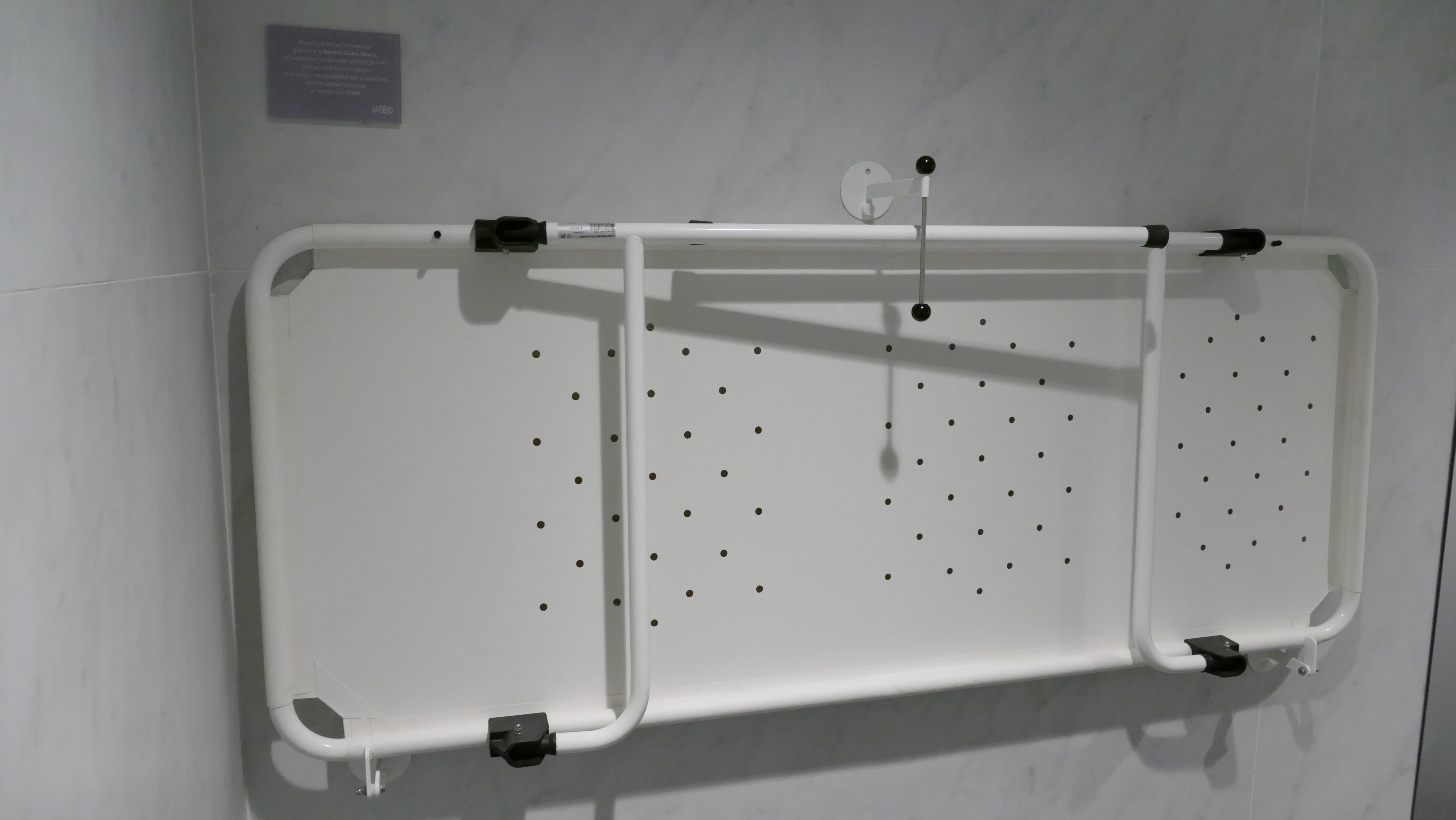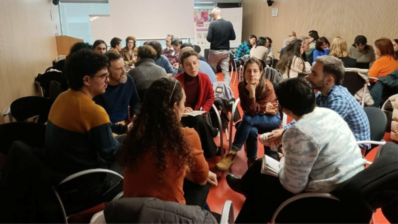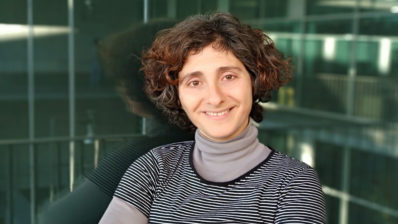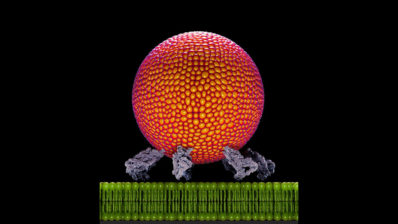Since May this year, the Barcelona Biomedical Research Park (PRBB) has an adapted stretcher in the bathrooms of the seminar rooms, located in the inner square, thanks to the collaboration of the park’s Infrastructure Service, the PRBB’s Equality, Diversity and Inclusion Committee, and especially Beatriz Calvo Serra, a PhD student at the Department of Medicine and Life Sciences, Pompeu Fabra University (MELIS-UPF), who sadly passed away in January 2024.
Bea, who was working on her doctoral thesis in the functional genomics group led by Robert Castelo, contributed to improving inclusion and accessibility for people with functional diversity both in the PRBB and UPF environments.
A brilliant student from the start and passionate about biology, Bea was well aware of the difficulties she might face due to her congenital myopathy, which forced her to rely on an electric wheelchair.
“When Bea was in her senior year of high school, La Marató de TV3 focused on neurodegenerative diseases, and her mother, María José, always so proactive, asked if I could find a PRBB researcher willing to come to Calella to give a talk,” recalls Miquel Àngel Serra, Bea’s uncle, who worked at the PRBB for ten years. “I spoke to Paco Muñoz, and he accepted,” he continues.
“At the end of the conference, I introduced them and mentioned that Paco was a professor of Human Biology at UPF. Bea said she would love to study that but wasn’t sure if it was possible. Paco, who had helped design adapted laboratories at the faculty, asked if she could perform the gesture of pipetting, demonstrating it as he spoke. When she repeated the gesture, he told her that she could definitely become a student,” Serra adds.
After scoring 9.4 on her university entrance exams and receiving the Generalitat Distinction, Bea decided to study Human Biology at UPF. But first, she had to ensure everything was adapted to her needs.
Working for inclusion and fulfilling a dream
This process, in which UPF’s inclusion service (Mireia Oliver), the Campus del Mar administration (Fina Lorente and her team), and the Dean’s Office of the Faculty of Medicine and Life Sciences (Quim Gea and his team) were involved, was carried out very efficiently, allowing Bea to start her studies in September 2014.
She became the first student with over 90% physical disability in the UPF’s life sciences campus, attending lectures and labs perfectly integrated with the rest of students.
Beatriz Calvo Serra was the first student with over 90% physical disability at the UPF life sciences campus.
After completing her degree, Bea pursued a Master’s in Data Analysis at the University of Vic before starting her PhD in Robert Castelo’s lab, associate professor at MELIS-UPF, at the PRBB. Here, Bea also advised the PRBB’s Diversity, Equality, and Inclusion Committee on how to adapt the building’s spaces for people with physical disabilities. The newly installed stretcher was Bea’s last contribution, and has been accompanied by a plaque in her memory and in recognition of her contribution to improving accessibility in the building.
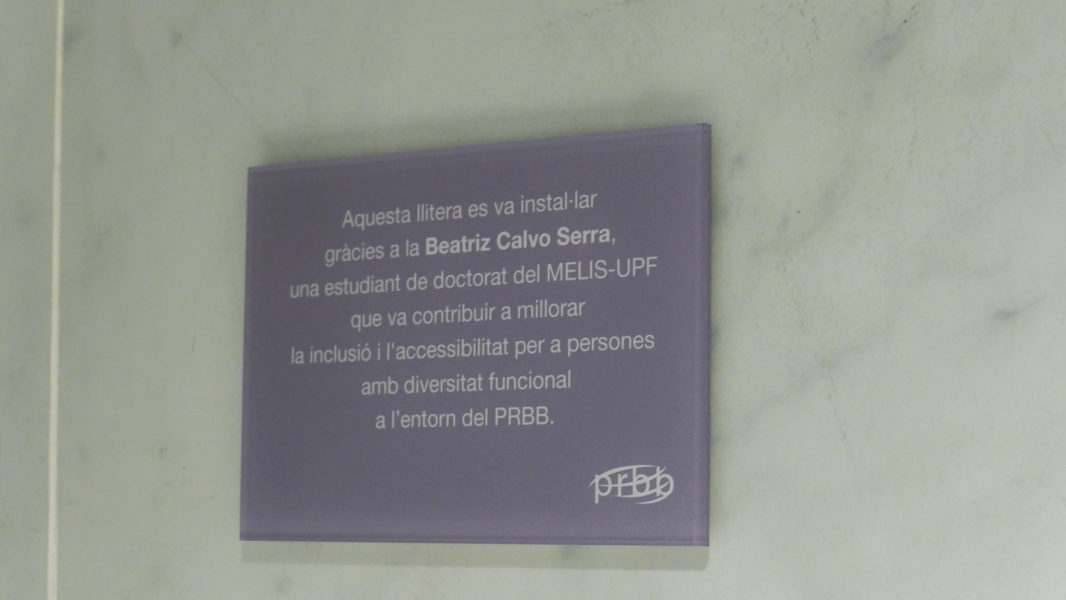
Scientific legacy and resilience: Bioconductor posthumous award
But Bea’s contributions were not limited to accessibility and inclusion. Not only her resilience but her scientific legacy were also recently acknowledged by the scientific community.
This summer, during the North American Bioconductor conference—an international project aimed at developing open-source software in the R programming language to facilitate rigorous and reproducible biological data analysis, in which Bea actively contributed—a new award was posthumously created in her honor, named the “Bioconductor Athena Award.”

The head of Bioconductor’s Community Advisory Board (CAB), Aedin Culhane, professor of biomedical sciences at the University of Limerick, Ireland, introduced and explained the award. Bea’s sister, Isabel, participated remotely via video call with words of gratitude.
“We are honored to create this award in recognition of Bea’s outstanding contributions and the inspiration her strength and resilience to overcome challenges and her collective spirit offer to the community,” she added.
“The new Bioconductor Athena Award, created in honor of Bea’s contributions, will honor members of our community who overcome challenges to participate and contribute to Bioconductor.”
Aedin Culhane, Bioconductor
The award is named after one of the software packages Bea developed and contributed to Bioconductor: atena. Athena was the Greek goddess of wisdom, known for her courage in the face of adversity. “The Bioconductor Athena Award will honor members of our community who overcome challenges to participate and contribute to Bioconductor,” explained the project representative.
Here you can watch the video of this touching moment:
Later, the physical award was presented during the European Bioconductor conference in Oxford—an annual meeting that next year will be held at PRBB (September 17-19, 2025). The award was collected by María José and Víctor, Bea’s mother and brother, in a very emotional moment shared among more than 100 attendees.

We would like to take this moment to pay a small tribute to Bea, who left us too soon but not without persevering in her dream of becoming a researcher. Her efforts have left a lasting legacy at all levels.
In terms of accessibility, with adapted classrooms, computer rooms, bathrooms, and other facilities both at UPF and PRBB, benefiting future students and residents at the park.
And scientifically, through her contribution of two Bioconductor packages: atena, to quantify the RNA expression of mobile genetic elements, and gDNAx, to diagnose and correct the presence of genomic DNA contamination in RNA sequencing data. Additionally, Bea also participated in a recently published study in collaboration with Mar Albà’s group at the Hospital del Mar Research Institute, identifying microproteins that could play a key role in developing vaccines against liver cancer.
Thank you for everything, Bea!


